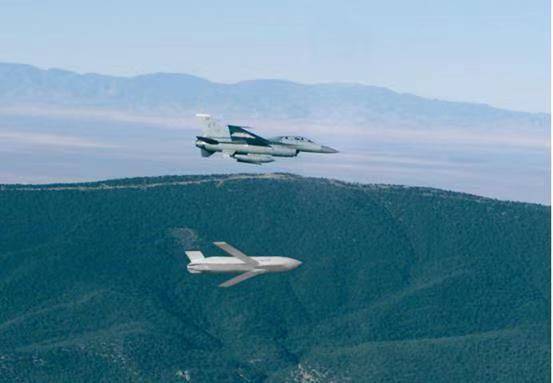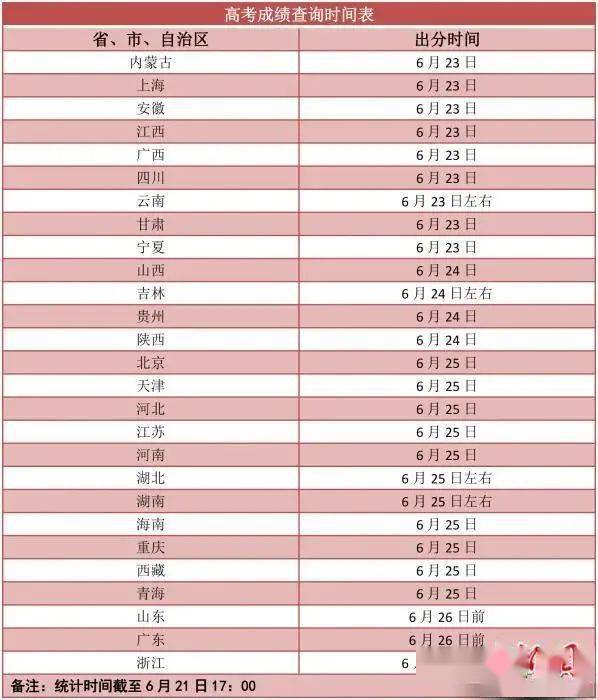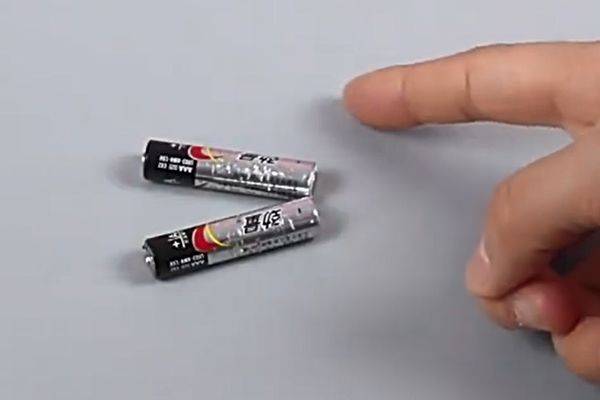Biden re-launched arms sales to Taiwan. Who is turning the Taiwan Strait into a “powder keg”?
According to media reports, the Biden government may launch its first arms sales to Taiwan, providing M109A6 self-propelled howitzers to Taiwan, China. According to the “Global Times” quoted a Taiwan media report on April 20, the Taipei Office of the “American Institute in Taiwan” has notified the Taiwan side that the United States will announce the procedure for notifying the Congress of Taiwan’s procurement of the M109A6 self-propelled howitzer in the near future. The head of Taiwan’s defense department responded that the arms purchase case has been promoted for a long time, but has not received an official notification from the US government. If the arms sales to Taiwan are confirmed in the near future, then compared to the first batch of arms sales to Taiwan proposed by former U.S. President Trump half a year after taking office (June 2017), Biden’s footsteps are obviously a bit faster. The signal sparked outside discussion. Some experts said that this also indicates that the Biden administration is likely to play the “Taiwan card” more and more, and it is also responding to the demands of anti-China elements and military enterprises in the United States. According to CCTV military reports on the 21st, citing Taiwan media, senior officials of Taiwan’s defense department confirmed in Taiwan’s legislature on the 19th that Taiwan is seeking US approval to sell AGM-158 missiles. This is the first time that the Taiwan military has recently publicly confirmed that it is seeking to purchase air-launched long-range precision strike weapons from the United States. The Ministry of Foreign Affairs of China has repeatedly reiterated that the US arms sales to the Taiwan region seriously violated the “One China” principle and the three Sino-US joint communiqués, grossly interfered in China’s internal affairs, seriously undermined China’s sovereignty and security interests, and sent wrong statements to the “Taiwan independence” separatist forces. The signal seriously damages Sino-US relations and peace and stability across the Taiwan Strait. China firmly opposes this.  The M109A6 self-propelled howitzer equipped by the US military. What are the considerations behind Biden’s first arms sales to Taiwan? Taiwan’s “United Daily News” reported on the 19th that the Taipei Office of the “American Institute in Taiwan” notified Taiwan in March, and the US Department of Defense Security Cooperation Agency (DSCA) will shortly notify Taiwan on Taiwan’s procurement of the M109A6 self-propelled howitzer. Announcement of Congress procedures; and this year, Taiwan will negotiate agreements with the United States through multiple channels such as the “American Institute in Taiwan” Taipei Office and the Taipei Military Mission in the United States to discuss the content of the offer to jointly promote the case. It is understood that Taiwan plans to purchase 40 M109A6s. “This is also the first batch of arms sold by the Biden administration to Taiwan.” Taiwan’s land force plans to install them in batches from 2023 to 2025. Taiwan’s military decided to purchase M109A6 in 2019. Starting from 2020, it has set a budget of approximately NT$17.3 billion, because the main artillery equipment of Taiwan’s land-based artillery units has exceeded the age limit. According to relevant information released by the Taiwan region, Taiwan’s land armed forces are currently equipped with about 300 self-propelled howitzers. The models include M109A2, M109A5 and M110A2. The M109 series have a caliber of 155 mm and the M110 series are 203 mm self-propelled howitzers. “These are old-fashioned self-propelled artillery. The two M109s equipped in Taiwan use a 39-caliber 155mm artillery with a maximum range of only 30 kilometers and a low degree of automation.” Military expert Han Dong said, “At present, the world Advanced self-propelled howitzers have long been equipped with 52-caliber 155mm self-propelled howitzers, with a range generally exceeding 50 kilometers. They have autoloaders and new guided artillery shells, and have a high degree of automation. Taiwan’s self-propelled howitzers are already very backward.”
The M109A6 self-propelled howitzer equipped by the US military. What are the considerations behind Biden’s first arms sales to Taiwan? Taiwan’s “United Daily News” reported on the 19th that the Taipei Office of the “American Institute in Taiwan” notified Taiwan in March, and the US Department of Defense Security Cooperation Agency (DSCA) will shortly notify Taiwan on Taiwan’s procurement of the M109A6 self-propelled howitzer. Announcement of Congress procedures; and this year, Taiwan will negotiate agreements with the United States through multiple channels such as the “American Institute in Taiwan” Taipei Office and the Taipei Military Mission in the United States to discuss the content of the offer to jointly promote the case. It is understood that Taiwan plans to purchase 40 M109A6s. “This is also the first batch of arms sold by the Biden administration to Taiwan.” Taiwan’s land force plans to install them in batches from 2023 to 2025. Taiwan’s military decided to purchase M109A6 in 2019. Starting from 2020, it has set a budget of approximately NT$17.3 billion, because the main artillery equipment of Taiwan’s land-based artillery units has exceeded the age limit. According to relevant information released by the Taiwan region, Taiwan’s land armed forces are currently equipped with about 300 self-propelled howitzers. The models include M109A2, M109A5 and M110A2. The M109 series have a caliber of 155 mm and the M110 series are 203 mm self-propelled howitzers. “These are old-fashioned self-propelled artillery. The two M109s equipped in Taiwan use a 39-caliber 155mm artillery with a maximum range of only 30 kilometers and a low degree of automation.” Military expert Han Dong said, “At present, the world Advanced self-propelled howitzers have long been equipped with 52-caliber 155mm self-propelled howitzers, with a range generally exceeding 50 kilometers. They have autoloaders and new guided artillery shells, and have a high degree of automation. Taiwan’s self-propelled howitzers are already very backward.”
“Most of these self-propelled howitzers provided by the United States have been in service for more than 40 years, and some are still second-hand. The latest M109A5 also arrived in 1998, and the oldest M110A2 self-propelled howitzer has even been in service for more than 60 years and is an’antique’ equipment. “Han Dong said.
Taiwan’s “Defense Shutter” magazine once stated that Taiwan’s artillery has been ignored for a long time, and its main equipment is old. Even the relatively new M109 self-propelled artillery has been in service for more than 30 years. There are problems such as inconvenient maintenance, reduced integrity, and outdated performance. .
The M109A6 is an active self-propelled howitzer in the U.S. Army. Compared with the M109A5 artillery, the biggest difference is that the current mainstream 52-caliber 155mm artillery is used. The range has been increased. If the extended-range projectile is used, the range can reach 30 kilometers. The “Sword” precision-guided projectile has a range of up to 40 kilometers. In addition, the gun adopts a semi-automatic loading mechanism and a fire control system, and the degree of automation, rate of fire and firing accuracy have been further improved.
If the Biden administration conducts its first arms sales to Taiwan in the near future, the time will be earlier than that of former President Trump’s first arms sales to Taiwan. Jiang Chunliang, a researcher at the Academy of Military Sciences, believes that the arms sold to Taiwan this time are self-propelled artillery. Compared with some offensive weapons, the military stimulus is relatively small. It is an arms sale with more political significance than military significance, because the time has advanced. It shows that the Biden administration is likely to play the “Taiwan card” more and more. It can be said that the weapons are average and the provocations are not small.
“Biden’s first arms sales to Taiwan ahead of schedule are in response to the demands of domestic anti-China elements and military industrial enterprises, and it is also the implementation of the “National Security Strategy Interim Guidelines” released last month.” Jiang Chunliang told The Paper (www.thepaper.cn) ), “This is (intent) to tell the anti-China forces in the United States that the Biden administration will continue to play the’Taiwan card’ and pay more attention to the strategy of’using Taiwan to control China’ so that it can gain more chips.”
On April 7, the US guided missile destroyer “McCain” crossed the Taiwan Strait. Less than three months after Biden came to power, US warships have crossed the Taiwan Strait four times. The frequency and number of times are relatively rare.
Military expert Han Dong told The Paper that the 40 M109A6 self-propelled howitzers have limited firepower to Taiwan’s military, and the weapons that Taiwan military needs most to enhance air and sea dominance, such as long-range air-to-surface missiles, fifth-generation stealth fighters, stealth drones, Submarine and “Aegis” battleship. Without air supremacy, these land warfare weapons will all become the targets of fighters.
Regarding the US arms sales to Taiwan, China’s Ministry of Foreign Affairs has repeatedly reiterated that US arms sales to Taiwan seriously violated the “One China” principle and the three Sino-US Joint Communiqués, especially the provisions of the August 17 Communiqué, which grossly interfered in China’s internal affairs. Serious damage to China’s sovereignty and security interests, sending wrong signals to the “Taiwan independence” separatist forces, and serious damage to Sino-US relations and peace and stability across the Taiwan Strait. China firmly opposes this. China urges the U.S. to abide by the one-China principle and the three Sino-U.S. joint communiqués, stop arms sales to Taiwan and US-Taiwan military ties, and immediately cancel the arms sales plan to Taiwan, so as not to cause damage to Sino-U.S. relations and peace and stability across the Taiwan Strait. Further damage.

AGM-158 missile
Taiwan seeks more offensive weapons
In addition to purchasing new self-propelled howitzers from the United States, Taiwan is also actively seeking long-range air-launched cruise missiles from the United States. The senior officials of Taiwan’s defense department confirmed that Taiwan is seeking US approval to sell the AGM-158 missile. All announced Taiwan-US military purchases are progressing normally.
This is the first time that the Taiwan military has recently publicly confirmed that it is seeking to purchase air-launched long-range precision strike weapons from the United States.
According to the “Voice of America” report, AGM-158 is considered to be one of the most advanced air-launched cruise missiles in the world, with a range of 370 kilometers, developed and manufactured by Lockheed Martin. This missile is designed to destroy high-value, well-defense, fixed and mobile targets, and the carrier can launch attacks outside the opponent’s ground air defense system. AGM-158 also has a stealth capability and can fight around the clock, day and night. The models that can carry this missile include Taiwan’s existing F-16 fighters.
“This missile is one of the main weapons used by the U.S. military to strike high-value targets of its opponents. It will not be easily sold to the outside world. It is currently approved for sale to a few countries including Japan.” Military expert Han Dong pointed out, “The AGM-158 missile is the most worthwhile. The two places of concern are the long range, the extended range can even reach thousands of kilometers, and the stealth design, which has strong penetration capabilities, and the threat is still relatively large.”
“It is worth mentioning that the U.S. military has also developed the AGM-158C missile capable of dealing with large ships such as aircraft carriers and amphibious assault ships. This missile is an improved version of the U.S. extended-range missile AGM-158B with a range of more than 500 kilometers. The area obtains this kind of missile, the anti-ship capability will be greatly improved.” Han Dong said.
During the Trump era, a major trend in US arms sales to Taiwan was to provide more and more offensive weapons. In October last year, the US State Department approved the sale of weapons and equipment worth more than 1.8 billion US dollars to Taiwan, including the “Hamas” high-mobility rocket launcher system, the “Slam”-ER extended-range air-to-surface missile and the MS-110 reconnaissance pod. Wait.
The most concerned of these weapons for sale are the “Hamas” rocket launcher and the “Slam”-ER air-to-surface missile. The “Hamas” rocket launcher will be equipped with ATACMS ballistic missiles (Army Tactical Missile System). This is the first time that the United States sold the “Lance” ballistic missile to the Taiwan region in the 1970s and provided this weapon again after more than 40 years.
The “New York Times” of the United States pointed out in an earlier article that the most sensitive batch of arms sales to Taiwan is the “Slam”-ER air-to-surface missile, which is improved from the Harpoon anti-ship missile. Mounted on Taiwan’s F-16 fighter, it can strike land and sea targets 300 kilometers away, even after launching, the target can still be changed. Its precision strike capability was once rated as the smallest error among US naval weapons.
Before the AGM-158 “Jasm” air-to-surface cruise missile was equipped with the U.S. Navy on a large scale, the “Slam”-ER was the main weapon of the U.S. Navy’s off-zone strike, with the advantages of long range and high accuracy. A few countries such as South Korea and Turkey have purchased the missile, and they all regard the missile as a “strategic-level” strike weapon.
Background information: 11 arms sales to Taiwan during Trump’s tenure
December 2020 : Field Information and Communication System (US$280 million)
November 2020 : 4 MQ-9 drones (US$600 million)
October 2020 : 100 “Harpoon” shore-to-ship missile systems (US$2.37 billion)
October 2020 : 135 “Slam”-ER air-to-surface missiles, 6 new F-16 reconnaissance pods (MS110) and 11 “Hamas” multiple rocket systems ($1.8113 billion)
July 2020 : “Patriot”-3 missile-related parts and logistics services (US$620 million)
May 2020 : MK 48 Mod6 AT heavy torpedo and its testing equipment and technical logistics services (US$180 million)
August 2019 : 66 F-16V fighters and airborne weapons (US$8 billion)
July 2019 : 108 M1A2T main battle tanks, 14 M88A2 armored rescue vehicles, 250 Stinger portable air defense missiles, etc. (US$2.224 billion)
April 2019 : The F-16 fighter pilot training program for Taiwan’s air power at Luke Air Force Base in Arizona (US$500 million)
September 2018 :F-16 fighter jets, IDF fighter jets and other four types of aircraft five-year supply of parts and components and related logistics support systems (330 million US dollars)
June 2017 : 50 “Hamm” anti-radiation missiles, follow-up maintenance of SRP radar, personnel training, etc. (1.42 billion US dollars)
(This article is from The Paper. For more original information, please download the “The Paper” APP)





























































You must log in to post a comment.